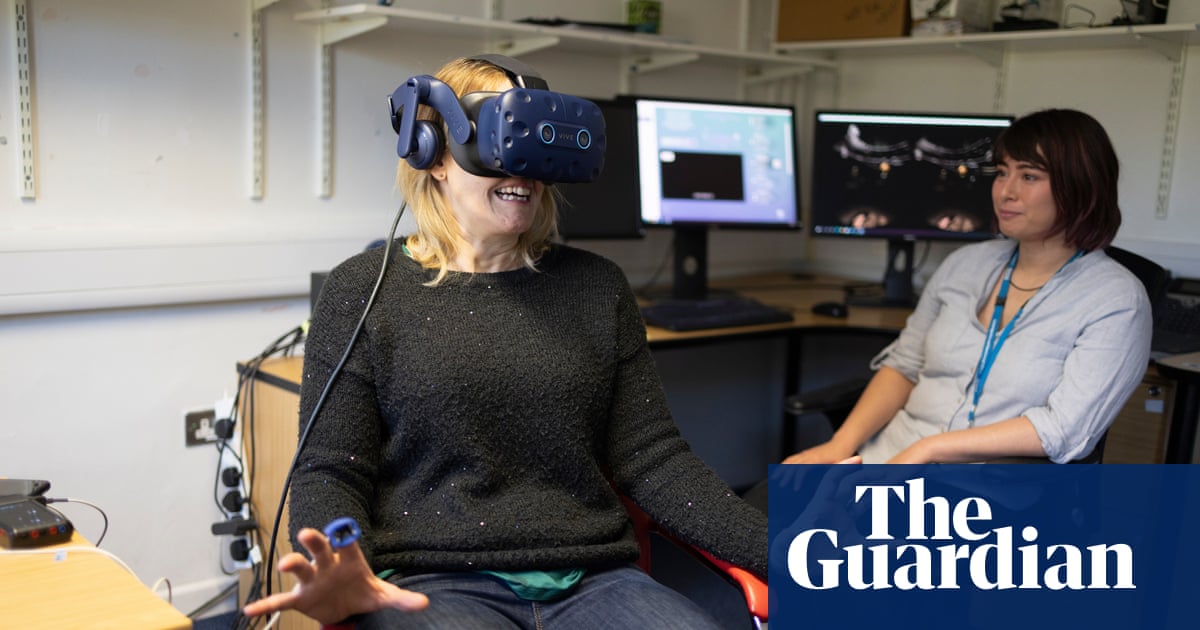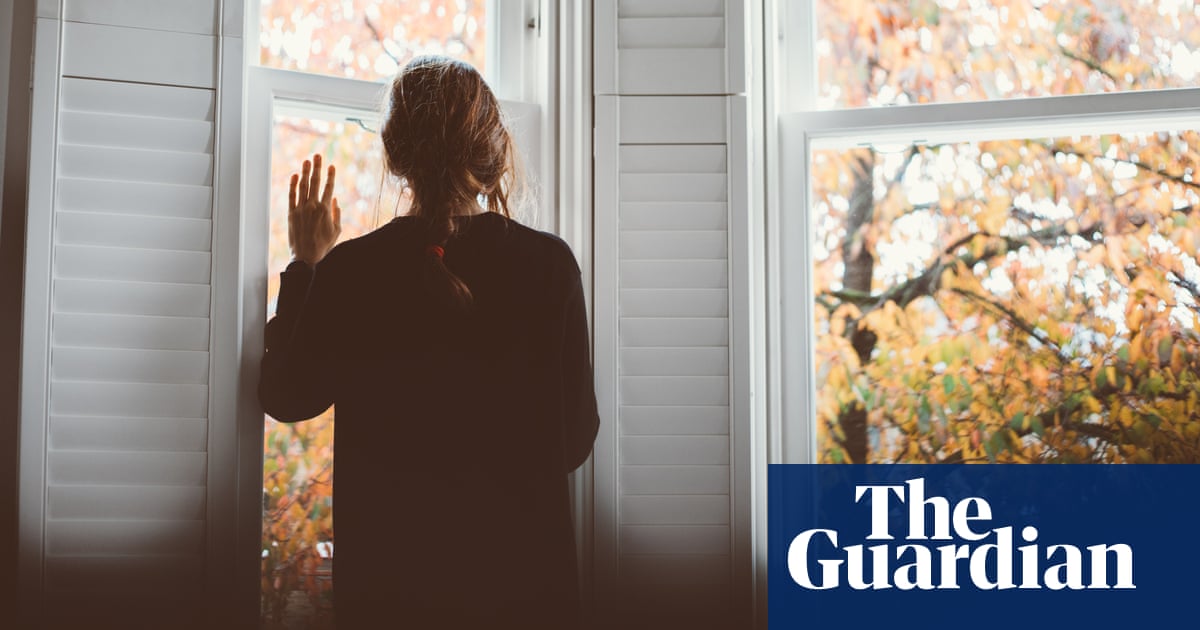
James Partridge is in two minds about the wearing of face masks, which became mandatory on 15 June on public transport in England. As the director of Face Equality International he is concerned that by hiding disfigured faces, masks will prevent the public awareness-raising he has championed for the best part of 30 years.
“For health reasons it’s very important to protect yourself from others,” he says, “but face masks could increase the social awkwardness of facial disfigurement. People may feel more anonymous, which is great in some ways – not to be asked stupid questions, or starred or pointed at – but of course they will then have the difficulty of taking off their mask at some point and that could be very anxious-making.”
More than 500,000 adults and children in the UK have some kind of facial disfigurement ranging from cleft lip and palate or birth marks, to injuries sustained in a fire, or developing a condition such as Bell’s palsy or facial cancer.
Partridge, 67, suffered severe burns in a car fire, aged 18, just before going to university. His own struggle to come to terms with the shame, anger and depression he experienced and his subsequent fight to overcome prejudice and help others, is charted in a new book Face It: Facial Disfigurement and My Fight for Face Equality published this week. Part survivor memoir, part self-help manual and part manifesto for social change, Partridge says he has written the book he wished had been available to him.
Not only did he have to come to terms with his unrecognisable face, which he called *IT*, but he had to build a new resilient person able to tolerate the intrusions and assumptions that went with *IT*.
“I was groping in the dark. It was a long, long struggle to get out the other side. I didn’t really have any guidance,” he says.
So how has he found lockdown? OK, he says, he has been shielding for an unrelated health issue, but for many with a facial disfigurement seeing themselves on Zoom during online meetings has taken some getting used to. “It’s not a friendly process, especially for someone who is just adjusting to having a facial disfigurement. You are partly looking at yourself which can be quite disturbing,” he explains.
And Partridge is very concerned about reports he has heard that lockdown is exacerbating online abuse for people with disabilities on social media platforms such as Instagram, Snapchat and TikTok.
“Social media is such a wonderful way to connect people, but the downside is really vile,” he says. “Some of the abuse that’s put out there beggars belief. We have to find ways of getting social media companies to moderate, act upon and probably outlaw this sort of commentary and memes that are just totally unacceptable.”
But the main anxiety for people with a facial disfigurement will be coming out of lockdown. Many, such as those with auto-immune and cranio-facial conditions, will have been shielding due to underlying health issues, and so will still have to stay at home. But for others who would have felt safe and secure cocooned in their own home away from public scrutiny, the thought of going back out into the world again will feel daunting and they will need support.
“It does take an effort to get out, to go shopping, to go to work, or to get on public transport. Sometimes it becomes second nature, but often it doesn’t and suddenly having to do it all again after you’ve been stuck at home will be quite difficult,” says Partridge, recalling his own early experiences.
Fifty years after the accident, he now describes his face as “a hotchpotch of scars, skin grafts and weird asymmetry (thanks to brilliant surgery)” and says “I live with my very distinctive face with pride.” It drove him to set up Changing Faces in 1992 to provide support for people with facial disfigurementsand their families by developing confidence-boosting tools like a disfigurement-specific cognitive behavioural therapy programme.
Having successfully campaigned at Changing Faces to get legal protection in the UK for people with “severe disfigurements”, Partridge now hopes to do the same for people in countries such as South Africa and India, where they have no such protection or rights.
The UN Convention on the Rights of Persons with Disabilities does not explicitly recognise that people with facial disfigurements can be vulnerable to prejudice and discrimination at work, in education and the media (and social media) and in public places. Face Equality International, a global alliance Partridge founded two years ago that now has 36 NGO members, will be striving to get that recognition, he says, so that governments are obliged to instigate local legal protections.
There are now more people in the public eye with a facial disfigurement including TV presenter Katie Piper, who survived an acid attack, actor Adam Pearson who has neurofibromatosis – a genetic disorder that causes tumours – and Canadian model Winne Harlow, who has the skin condition vitiligo.
Yet for every step forward, new obstacles seem to appear on the long road to face equality.
Airbrushing apps used by millions of young people on social media mean that a new generation is bombarded with unobtainable images of beauty on their phones 24/7. Cosmetic surgery has now become so normalised that if you have a less than perfect face it’s seen nowadays as your own fault. “There is almost a moral obligation to have work done, to get your face fixed”, says Partridge. He has warned for many years of the potential dangers of cosmetic surgery and how it needs to be much better regulated, but says “the government has failed to get a grip of the whole problem”.
Despite coronavirus, FEI celebrated its second international face equality week last month with a digital campaign in which 1,200 people worldwide with facial disfigurement did something they don’t usually do – took a selfie and shared it. And earlier this year, FEI published an international set of guidelines to help media organisations and professionals avoid stigmatising and stereotyping people with disfigurements.
But the entertainment industry doesn’t help. The latest James Bond film apparently has two baddies with facial disfigurements, says Partridge. He will use the film’s delayed release as an opportunity to raise awareness about how this shorthand for a movie villain continues to stigmatises people. He has also written to film director Sir Peter Jackson and Amazon boss Jeff Bezos about the new Lord of the Rings TV extravaganza which will “lazily portray the ‘baddie’ Orcs as facially (and bodily) flawed”, when Tolkein didn’t. “We have to take the fight to those who continue to promulgate these stereotypes,” says Partridge with his characteristic optimism.
It’s hard to believe that this charming and confident campaigner, who makes you feel totally at ease with the burn scars on his face, wasn’t always like this.
“Self-belief and self-respect are very hard things to find if you have had them blown away,” Partridge insists. It was his mother, to whom he dedicates his book, who said that all the pain would not be in vain and would have meaning one day. “It was such a ridiculous thing to say, but she kept on saying it. It’s not that I really believed it at the time, but at least someone was saying it. It was very hard for me to see a future, but she was a fairly committed Christian and believed something good was going to come out of it.”
Curriculum vitae
Age: 67.
Lives: Guernsey.
Family: Married; three grown-up children, and six grandchildren.
Education: Clifton College, Bristol; University College, Oxford (MA Hons, politics, philosophy and economics); London School of Hygiene and Tropical Medicine (MSc medical demography).
Career: 2018-present: Founder and director, Face Equality International; 1992-2017: Founder and chief executive, Changing Faces; 2002-present; founding director of disability consultancy Dining With a Difference; 1979-92: dairy farmer and part-time economics teacher, Guernsey; 1977-79: research fellow, unit for the study of health policy, Guy’s hospital, London; 1976-77: assistant lecturer, health economics, St Thomas’ hospital medical school, London.
Books: Changing Faces: The Challenge of Facial Disfigurement (Penguin 1990); Face IT: Facial Disfigurement and My Fight for Face Equality (Pebble Press, 2020).
Public life: Founder member, Guernsey Community Foundation, has served on public bodies including the National Institute for Clinical Excellence and the chief medical officer’s expert panel on cosmetic surgery; associate of the Business Disability Forum. Has an OBE for services to people with disabilities, honorary doctorates from Bristol universities, and is an honorary fellow of the Royal College of Surgeons of Edinburgh.
Interests: Current affairs, keen vegetable grower; golf; skiing, spending time with family.












